 I can’t claim to be a master o’ the written word, but I can pretend to be one. With that in mind, I am compelled to push forward any writing-related knowledge I may have in hopes that you too can promote a false sense of superiority.
Today’s lesson: Writing has two ways to keep you grounded in your story, or “anchors,” as I will call them.
I can’t claim to be a master o’ the written word, but I can pretend to be one. With that in mind, I am compelled to push forward any writing-related knowledge I may have in hopes that you too can promote a false sense of superiority.
Today’s lesson: Writing has two ways to keep you grounded in your story, or “anchors,” as I will call them.
- The words you've already put down
- The words you have yet to put down
Greg topped his tank for what he knew would be the last time in many miles, days, perhaps even weeks.Then I already have a wealth of information to use as I continue the story. Writer's block be damned. Here I can explore who Greg is, why he is traveling, why it will be the last time for a while, what kind of car does he drive, whose car is it, and so on. This advice seems obvious doesn't it? Because it is. So many times we simply fail to recognize the simple things. Keeping this bank in mind can literally help sprout a full story from a single, random line. The second anchor is a reference to story outlines. I am a strong proponent for outlining a story. The concept is scary to many writers, as it implies the structured tiered outline forced upon us in middle school. But, an outline can be something as simple as a numbered list of plot points. The goal is to simply know your general direction so that you are never daunted by infinite possibilities. Believe it or not, restriction is important when writing. The goal isn't to open you mind to infinite ideas; the goal is to tame those ideas down to a manageable level. I think it is Max Barry who compares this second anchor to a car’s headlights (if anyone knows the source for sure, please let me know in the comments below). One should write with only a few future plot points in mind, basically the distance that a car’s headlights reach. I agree with this. The headlights allow a story to move in a visible direction while at the same time not allowing the story to wander off the road. Now, tell your friends that I am a genius.

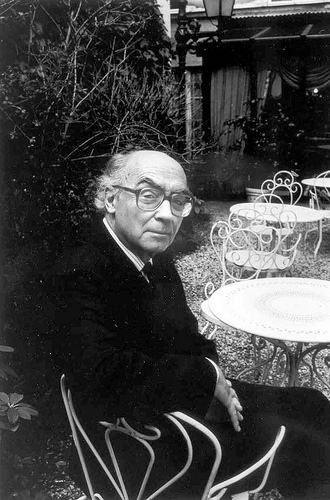
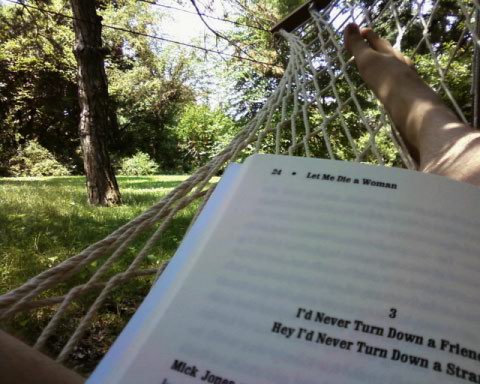
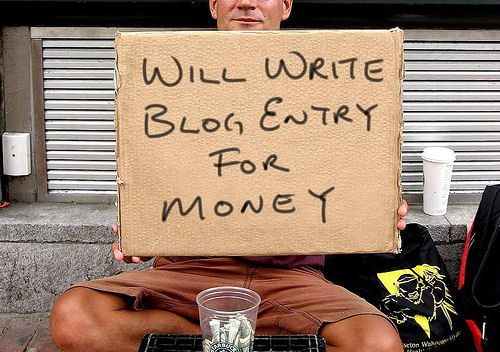
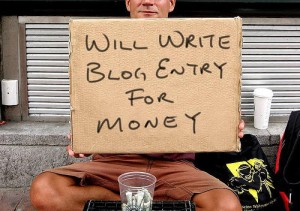 Disclaimer: I am far from a career author. I’ve made enough money to buy a few fifths of whisky and some diapers for my baby, so needless to say I’ve got a long way to go. The following plan reflects this outsider (re: possibly ignorant) perspective.
The idealized author spends his time alone, churning out typewritten manuscripts to meet constant deadlines. He drinks. Probably smokes. He’s respected. He vacations in tropical seclusion, but still, even with the changed view, he writes. He has no day job. He is an author. Writing puts his kids through college.
There is a reason this image contains a typewriter. Much like the machine itself, the idealized author is all but extinct. I think a lot of writers would like to go back to this model. Is it possible to not just retain the author career, but to make it thrive?
Given the following set of assumptions, I believe it would be possible to bring back the author career:
Disclaimer: I am far from a career author. I’ve made enough money to buy a few fifths of whisky and some diapers for my baby, so needless to say I’ve got a long way to go. The following plan reflects this outsider (re: possibly ignorant) perspective.
The idealized author spends his time alone, churning out typewritten manuscripts to meet constant deadlines. He drinks. Probably smokes. He’s respected. He vacations in tropical seclusion, but still, even with the changed view, he writes. He has no day job. He is an author. Writing puts his kids through college.
There is a reason this image contains a typewriter. Much like the machine itself, the idealized author is all but extinct. I think a lot of writers would like to go back to this model. Is it possible to not just retain the author career, but to make it thrive?
Given the following set of assumptions, I believe it would be possible to bring back the author career:
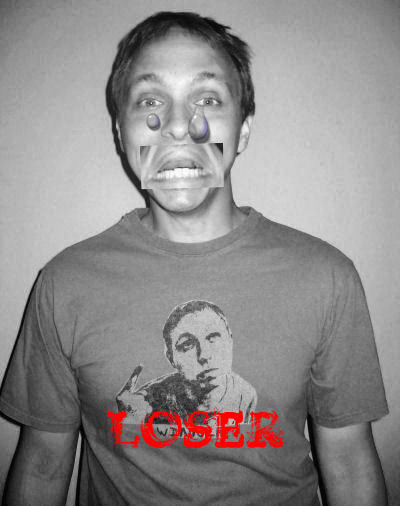
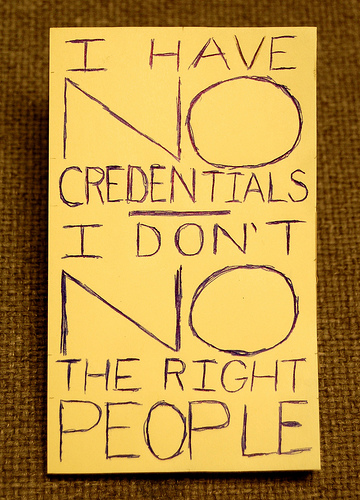
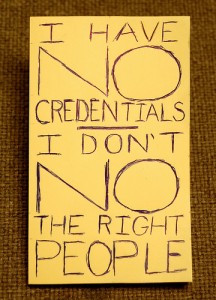 (this is more of a rant than a cohesive post. Also not a cohesive post: an ionic neutral road sign…oh, I went there, sirs and mams)
When I say that best-selling doesn’t mean best writing I understand the hipster ditch I dig. It sounds whiny and pretentious, all the more so when one realizes that nothing of mine is even close to best-selling. I’m not sure the word “best” could be put in front of any word and used to describe my work. Best tinder, maybe. Best use of paper bound by a cover bearing the name Caleb J Ross, perhaps. But someone could write my name on a phone book and it would be more “best” than my work. This ditch, though, it’s easy to dig, yet difficult to fill. But I will try.
When I say that best-selling doesn’t mean best writing, I’m really attacking the concept that commercial success defines artistic success. The Hitler example here would be Dan Brown’s DaVinci Code (“Hitler example” is a term I use to connote the extreme example; when someone wants to conceptualize something bad, Hitler is the go-to reference. Instead of explaining all of this, I should have just used a different term, maybe).
Many writers commonly denounce Dan Brown. While this may come off as petty jealously (we all want his money and readership), envy shouldn’t diminish the fact that his books are not well-written. Yes, they are great stories (those that I’ve read, I can vouch for), but they are not great writing. This is the divide between commercial and artistic success. Craig Clevenger, in an article for the Santa Barbara Independent (reproduced
(this is more of a rant than a cohesive post. Also not a cohesive post: an ionic neutral road sign…oh, I went there, sirs and mams)
When I say that best-selling doesn’t mean best writing I understand the hipster ditch I dig. It sounds whiny and pretentious, all the more so when one realizes that nothing of mine is even close to best-selling. I’m not sure the word “best” could be put in front of any word and used to describe my work. Best tinder, maybe. Best use of paper bound by a cover bearing the name Caleb J Ross, perhaps. But someone could write my name on a phone book and it would be more “best” than my work. This ditch, though, it’s easy to dig, yet difficult to fill. But I will try.
When I say that best-selling doesn’t mean best writing, I’m really attacking the concept that commercial success defines artistic success. The Hitler example here would be Dan Brown’s DaVinci Code (“Hitler example” is a term I use to connote the extreme example; when someone wants to conceptualize something bad, Hitler is the go-to reference. Instead of explaining all of this, I should have just used a different term, maybe).
Many writers commonly denounce Dan Brown. While this may come off as petty jealously (we all want his money and readership), envy shouldn’t diminish the fact that his books are not well-written. Yes, they are great stories (those that I’ve read, I can vouch for), but they are not great writing. This is the divide between commercial and artistic success. Craig Clevenger, in an article for the Santa Barbara Independent (reproduced 